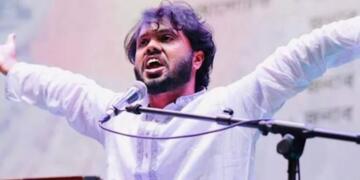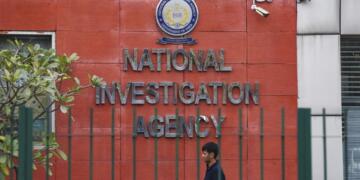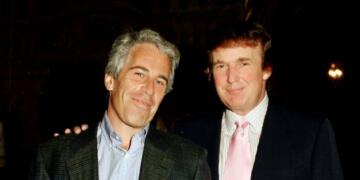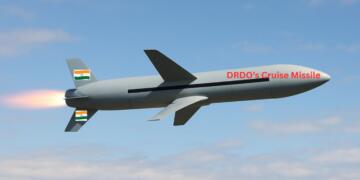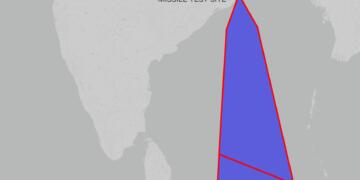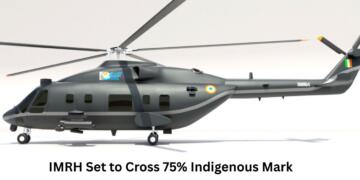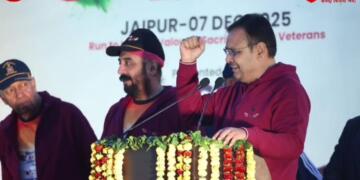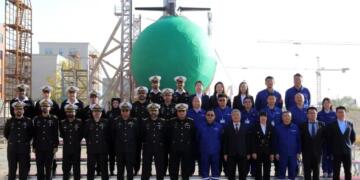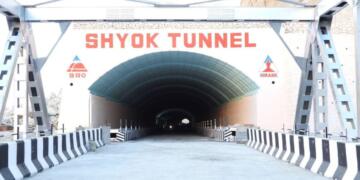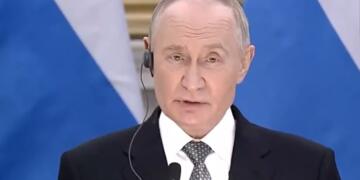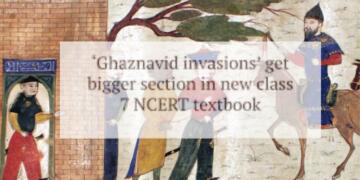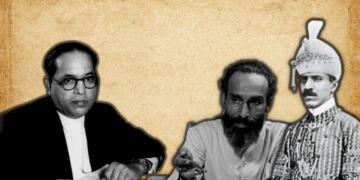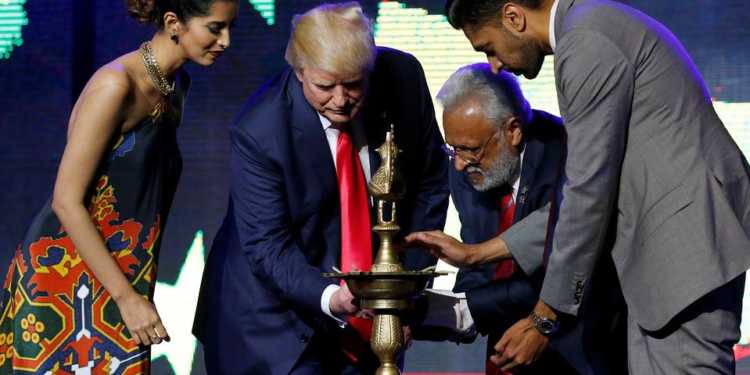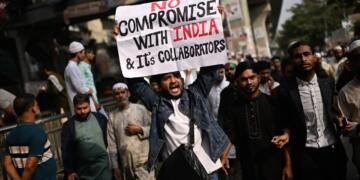Relationship between the largest and purportedly the strongest democracies were initially turbulent. The giant albatross of the cold war in form of the United States didn’t fit into Nehruvian non aligned scheme of things. When Pandit Nehru met a young JFK at the heels of a state visit in Washington, little did he realize the US was seeking a paradigm shift. A deep rooted tilt towards democratic India counter balancing a resurgent Mao’s People’s Republic of China was on the cards. But Nehru’s cold response to JFKs approach reflected stiffness that emanated from India’s narrowed perception of a foreign policy.
The roots of this flawed line of an accustomed soviet hobnobbing sugar coated by non aligned posturing jeopardized Ind-US relations beyond measure.From Nixon-Kissinger where the animosity climbed its ugliest peak, the Reagan and the Bush Sr years managed to score a bit of salvage.
When Bill Clinton years were around, the counterpart Indian polity was embroiled in coalition hara-kiri, after economic liberalization opened its floodgates at the end of the cold war. Then Pokhran nuclear explosions happened and with sanctions the relation took two steps backwards after a step forward.
With 2001 Bush administration and 9/11, the purported compassionate conservative outlook of the American foreign policy transformed into a combative war against terrorism. The global alliance that resulted in conjuring up to US as its allies fructified a sense of togetherness between Ind-US. Both countries as victims of terror with growing economic strength and robust cultural values made it up into natural allies of each other. The 2008 Ind-US civilian nuclear deal that was especially custom made, furthered relations to newer heights. And as Obama administration came into the picture, emergence of Modi govt here created a sort of high profile bonhomie. Having said that Ind-US relations have always faced that step limiting factor that inhibits it’s full out growth potential. It stays in a bubble growing and expanding with counter bursts that again curtail their sizes. As accordingly if I want to coin a term it stays in a humdrum existence encompassing romanticism of shared values rather than real substance.
With 2016 American Presidential polls are on the platter, the recipes of both the Democratic and Republican parties are ready to spice up and cook better relations with India.
Democratic party is seen as more tending towards Indian Diaspora yet Bush administration changed that scenario with the grand old party too favorably viewing India. On the contrary, Hillary Clinton mired by Wiki leaks belongs to the Democratic Party and her presidency may work competently for Indian interests but will be confined to the same slow pace of improving relations that I mentioned above. As we have seen the shift in Narendra Modi’s foreign policy initiatives from the days of Dr Manmohan Singh, the new found pragmatism was visible in grandeur at the Madison square garden. A similar dynamism is necessitated with respect to the American counterpart and so perhaps an politically untested Trump may just resonate with this sentiment.
Donald Trump is loathed with controversies ranging from his views on Islam, building a wall against Mexico and immigration. But he is a political outsider and so like Clinton, his expertise especially cannot be gauged in the realm of actions but just words. How will India prepare for a Trump administration and can it really outweigh and strike a better shot at relations rather than Mrs Clinton? Questions will be forthcoming as here is a man who mocked an Indian call center in one of his fund raising speeches which created furor.
A Trump Presidency will take over after unprecedented two significant events.
His virtual takeover of the Republican party establishment and defeating Clinton through the rustic belts. Since owing to lack of his experience in handling foreign policy, his words or a measure of the same can be conjured up to map his plans. A Trump presidency is expected to downturn Chinese interests. China has been using America as a cash cow for decades and signs indicate a Trumpism will draw a wedge in it. Chinese manufacturing sector is booming and in the last decade or so US has lost millions of manufacturing jobs. President Trump will be electorally committed to adhere to his election rhetoric by some measure and bring back jobs. The only way he can do is offsetting China’s labor cost advantage with tariff and non tariff barriers. This adventurism in 2017 can cause a wreck in the already sinking Chinese economy which is struggling to stay afloat. A US China trade war may have a spiraling effect and with recession and slow economic growth chipped in could spark political unrest. This may naturally benefit New Delhi. Along with it, the Filipino break up with Washington to caress with Beijing will have an impact in the South China sea dispute and the geopolitical game of chess that is seething for sometime now. A Trump presidency may ascribe to a hawkish view over this episode which was more sort of viewed in lieu with pacifism and Obama administration. These events will benefit India in the sense the feeble whimper of India being a Chinese counter balance will receive that thundering juggernaut that may not be profound as Clinton presidency. Abolishing free trade policies might affect New Delhi but tariff barriers wont hamper service oriented Indian industry. Trump’s feverish anti Chinese tirade may also help India push itself towards the goal of becoming a permanent member of UN security council.( China are main opponents)
Trump Presidency may rattle Islamabad in many ways. In his speeches Trump has lambasted Pakistan with respect to the aid it receives and has touted it to be the most dangerous country in the world. He also has seem to have taken a pro India position and this is a sharp reversal from previous presidential hopefuls who looked neutral more or less. Barack Obama too had spoken about mediation as a settlement to the dispute. As mentioned above, past presidents have viewed relations with India as great but the stumbling block in the strides was courting Pakistan. So leaders in Washington stuck to a monolithic nondescript sermonizing of harmony and peace in bi lateral relations between India-Pakistan. Trump may change all that if his words are ever translated to actions as his administration may just throw this sustained appeasement and give Modi govt waiting in the prowl to further help isolate Islamabad after Uri.
As Modi Govt came to power here, a Trump presidency may provide that required impetus to cater to India’s growing defense in lieu with increased military spending and make in India campaign. Indians entry into Missile technology control regime and nuclear suppliers group requires a renewed better leverage in Washington and a muscular Trump administration may fit it here better than a Clinton presidency.
Squashing free trade deals that disadvantage New Delhi would help Indian businesses and his opposition to trans pacific partnership would be a bonus as India has never signed the deal. Trump is of the opinion that such deals are detrimental to US workers. Many companies would breathe life if such trade deals which favors countries like Vietnam or Malaysia is squashed.
His position on immigration is consistently considered as a thorn for Indian dreams. In his campaigns he severely called upon India, China or Japan who were taking away the jobs. His target may be HB-2 visas which cater to all the IT Indian industry. But then campaign rhetoric and ground reality here could differ simply because he himself has expressed to be flexible with respect to immigration. On the contrary no president would like to cut the humble pie of benefit it receives from the IT sector here and its consistently an issue made in American elections which dies a natural death owing to restricting foreign labor is tad deadly injurious to American economy.
“I am a big fan of Hindu and India.’’ This stellar words from Trump may have raised a lot of eye brows. His position on banning Muslims was viewed with the Third Reich prism of sorts but he has down scaled his position by stating he meant to ban Muslims from conflict afflicted Iraq or Syria. However as Brajesh Mishra, the erstwhile NSA of India had envisioned an India-US-Israel axis as a counterweight to emerging threat of emerging global terrorism and to meet global challenges. A nationalistic Modi govt here and a seemingly triumphant muscular Trump administration can actually steer themselves towards this vision.
The threat of terrorism has changed its face to ISIS and with Trumps strong attacks on the same this trilateral axis can actually materialize.
As he was addressing Republican Hindu council, he expressed sympathy with India over Mumbai mayhem and the parliament attack and called it a great friend. Ideas like sharing of intelligence were propagated. Owing to his thundering voice against the ISIS, New Delhi can inter wine its battle with Washington for the same as it has tried to draw parallels between attacks happening in the west and in this part of the world. Since 2001, New Delhi has been trying to bring Pakistan at the core of global battle against terrorism and Trump presidency may just make it imperative to secure Islamabad isolation and declaring it as a failed terror state.
Even though Putin is said to have endorsed Trump, the degenerating US Russia relations may catch India in the cross fire as it has renewed relations with one and the other has been its stanch Cold War ally. This aspect may require a better balancing of sorts as both Trump or Putin may demand their flesh of pound from India in view of a Cold War era like conflict.
There is a massive onslaught already in the mainstream American media over Trump, his journey so far and his debates he has had with Mrs Clinton. Clinton as a part of Bill Clinton presidency or now as a Secretary of State, her line of securing strategic interests is well acquainted. Donald Trump like Narendra Modi is from outside the realms of the establishment. When Modi was expected to win, all detractors had predicted doomsday for the country. However in fact his Government has steered watershed policies. Similar picture is being projected for Trump. His outlandish language may have ruffled some feathers but that is infinitesimal in lieu with Wiki leaks revelations for Clinton.
Bush with his wars and poor global image became responsible for negating the Pan American view of things, touting it as an imperialist hegemonic power. But his sweet heart nuclear deal with India transformed Ind US bi lateral relations. All fear mongering of Trump can be salvaged with the fact we have to see our strategic interests and if he can deliver more than what Bush did, it would further propel India’s quest for regional superiority and its advancement at the world stage.
Support for India in the new age of multi polar world is bi partisan. However a conventional Clinton administration for India’s strategic interest may not be as out pacing as a resurgent Trump Presidency may become. Considering its all new with respect to the latter, all presumptions will be at galore.


